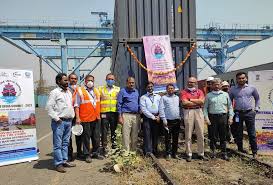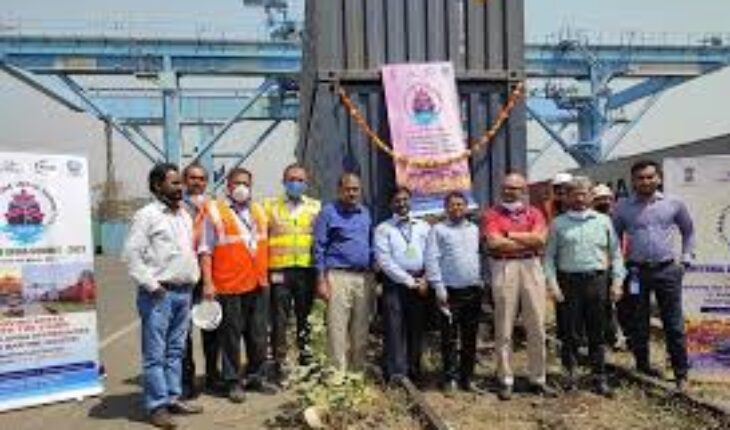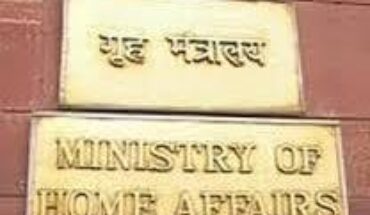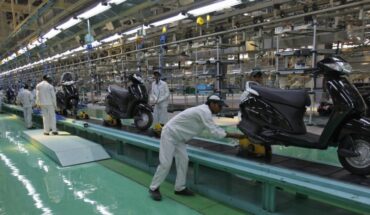By Dominick Rodrigues
Mumbai: The Railways undertook a successful trial run of double-stacked dwarf container train from Mehsana (Gujarat) to JN Port here on 3rd March, 2021. The train with five wagons of double stacked dwarf containers arrived at 11:30 hours and departed at 13:00 hours.
The ‘dwarf’ containers provides 67% increase in volume — when double-stacked — and can carry a weight of 71 tons, as against 40 tons by an ISO container. Indian Railways has given 17% discount on haulage cost for double-stack dwarf container trains, compared to double-stack ISO container trains coupled with additional volume benefit.

JN Port is in the process of finalizing an Operator for “Management, Maintenance and Operation of Dedicated Dwarf Container Depot (D-Depot) inside the Port area at JNPT”. Inside the D-Depot, ISO EXIM containers will be destuffed/restuffed and then re-stuffed in Dwarf Containers for further movement on rail to and from JN Port.
The concept of Dwarf container would be a ‘game-changer’ as the rail movement of EXIM cargo through double-stacked dwarf containers would significantly provide cost advantage to the customers and enhance rail traffic at JN Port, a release stated.
The Jawaharlal Nehru Port Trust (JNPT) at Navi Mumbai is the biggest container handling Port in India –accounting for around 52% of the total containerised cargo volume, across the major ports of India. Commissioned on 26th May 1989, in less than three decades of its operations, JNPT has transformed from a bulk-cargo terminal to become the premier container port in the country.
Currently JNPT operates five container terminals: The Jawaharlal Nehru Port Container Terminal (JNPCT), the Nhava Sheva International Container Terminal (NSICT), the Gateway Terminals India Pvt. Ltd. (GTIPL), Nhava Sheva International Gateway Terminal(NSIGT) and the newly-commissioned Bharat Mumbai Container Terminals Private Limited (BMCTPL). The Port also has a Shallow Water Berth for general cargo and another Liquid Cargo Terminal, which is managed by the BPCL-IOCL consortium.






